- Home
- Anna Campbell
The Laird's Willful Lass (The Likely Lairds Book 1)
The Laird's Willful Lass (The Likely Lairds Book 1) Read online
Table of Contents
Acknowledgments
Prologue
Chapter One
Chapter Two
Chapter Three
Chapter Four
Chapter Five
Chapter Six
Chapter Seven
Chapter Eight
Chapter Nine
Chapter Ten
Chapter Eleven
Chapter Twelve
Chapter Thirteen
Chapter Fourteen
Chapter Fifteen
Chapter Sixteen
Chapter Seventeen
Chapter Eighteen
Chapter Nineteen
Chapter Twenty
Chapter Twenty-One
Chapter Twenty-Two
Chapter Twenty-Three
Chapter Twenty-Four
Epilogue
Excerpt: Stranded With The Scottish Earl
About The Author
Published by Anna Campbell
Copyright 2018 Anna Campbell
Cover Design: © Hang Le
ISBN: 978-1-947414-12-9
All rights reserved. No part of this book may be reproduced in any form or by any electronic or mechanical means, including information storage and retrieval systems - except in the case of brief quotations embodied in critical articles or reviews - without permission in writing from the author, Anna Campbell. This book is a work of fiction. The characters, events, and places portrayed in this book are products of the author’s imagination and are either fictitious or are used fictitiously. Any similarity to real persons, living or dead, is purely coincidental and not intended by the author.
License Notes
This ebook is licensed for your personal enjoyment only. This ebook may not be re-sold or given away to other people. If you would like to share this book with another person, please purchase an additional copy for each recipient. If you’re reading this book and did not purchase it, or it was not purchased for your use only, then please return to your ebook retailer and purchase your own copy. Thank you for respecting the hard work of this author.
* * *
Acknowledgements
* * *
My heroine, intrepid watercolor artist Marina Lucchetti, was inspired by a real-life female photographer who traveled all over the Western Highlands and Islands in the early 20th century, recording a way of life that was even then starting to become part of history. So I’d like to dedicate this book to Mary Ethel Muir Donaldson (1876-1958) whose beautiful, haunting photographs first caught my attention at the excellent Mallaig Heritage Centre when I was on my way to stay on Eigg in 2017. I’d also like to thank Helen at the Heritage Centre for helping me to research M.E.M. Donaldson’s life in more detail when I decided that she’d make a wonderful model for a Regency painter.
* * *
Prologue
* * *
Western Highlands of Scotland, April 1802
“I think we’re lost,” Diarmid said, trudging along the narrow path a few feet behind Hamish.
Hamish could hear how hard his eleven-year-old cousin fought to stop his voice trembling with fear. He was frightened, too, and he was only ten, but as was his habit, he hid his disquiet beneath humor. “We can’t be lost. My mother will kill me if I’m not home for breakfast.”
The weak attempt at a joke didn’t do much to lighten Diarmid’s mood. “You said you could guide us by the stars.”
“I could until the moon came up,” Hamish retorted, wrapping his arms around his chest to contain a shiver. The day had been warm for April; the night turned bitterly cold.
“I can’t even see the moon anymore.”
No, damn it, he couldn’t either, and then the blasted mist had risen, as well. Although his mother wouldn’t like him swearing, even if only in his head.
On a bright, clear night, he and his cousin had set out to stargaze. They’d sneaked out of their tower bedroom in the rambling hunting lodge their parents had rented for a few weeks. The trip offered a chance for the two families to get together, for the Macgrath sisters to catch up on gossip, and for the children to play.
The moment he heard about the plan to stay in the hills outside Plockton, Hamish had been ecstatic. His cousin Diarmid, a whole year older, always struck him as the finest fellow in the world. And any masculine company made a nice change from a household shrill with three older sisters, and now the addition of a baby girl in arms.
When he’d climbed out of the high window and down the old oak tree, an excursion in the open air had seemed a great lark. Now thick mist rose about them, the temperature dropped toward freezing, and the slopes were so steep and rocky that if he or Diarmid stumbled on the path, a plunge to the death surely awaited.
“We should wait here,” Hamish said. “It’s too dangerous to go on. I brought a tinderbox to make a fire.”
“I doubt we’ll find any dry kindling,” Diarmid said. Hamish began to find his cousin’s habit of looking on the negative side rather grating.
“We’re still better off stopping.” Hamish turned back to Diarmid who formed an indistinct black shape against the looming rock. “It’s too dark to see our way, and the mist is getting worse.”
“If we stay in one place, we’ll freeze to death.” His cousin stood a few feet away, and Hamish felt him staring back through the murk.
“If we go on, we’ll fall off a cliff.”
“Is that any better?”
Diarmid had a point. But Hamish was tired of fumbling around in the dark, especially as he had a horrid suspicion that for at least the last hour, they’d gone around in circles.
A grim silence descended. Hamish shivered again and curled his toes against the soles of his boots to try to restore the circulation. When he left the hunting lodge, he’d been snug in his thick coat and woolen socks and stout boots. Now he was colder than he’d ever been in his life. His home on the coast at Glen Lyon was much gentler country than these wild northern climes.
“Hullooo!”
At first, the sound seemed a trick of the gusting wind.
“Hullooo, up the brae!”
“Is that…” Hamish asked, turning his head, though mist and darkness prevented him seeing anything.
Diarmid lifted his head and shouted. “We’re up here!”
“Are ye in trouble?” This time there was no mistaking that the sound was human, although it was difficult to tell from which direction it came.
“Yes. We’re lost.”
“Then don’t move.”
“Should we keep shouting so you can find us?” Hamish called out.
“Aye,” came the ghostly reply.
“What shall we shout?” Hamish asked.
Over the last acrimonious hour, Diarmid’s hero status had lost some of its shine, but Hamish had never admired his cousin more than when he broke into a stirring tune.
“Scots, wha hae wi ’ Wallace bled,
Scots, wham Bruce has aften led;
Welcome tae yer gory bed,
Or to victory.”
Hamish laughed with a shaming trace of relief and joined in the song. Now that rescue was on the way, their scrape turned back into a grand adventure.
They were into their second reprise before two figures emerged from the mist on the path ahead of him. One was a large, black dog of indeterminate breed. The other was…
“But you’re just a boy, too,” he said, his brief hope of safety vanishing and all his earlier fear rushing up in a choking wave.
“I’m all of fourteen,” the lad said huffily, lifting the lantern he carried to reveal Hamish and Diarmid shivering on the ledge. Under a long leathe
r coat, their rescuer wore a rough linen shirt and a red and black kilt. A brace of dead hares dangled from his wide black leather belt. “I’ll have ye ken I’m up to bringing a pair of brainless Sassenach laddies down a brae. You’re lucky I was out chasing some game and heard your voices on the wind.”
“My cousin didn’t mean—” Diarmid said.
“I’m no Sassenach,” Hamish interjected. “I’m as Scots as you are. I’m going to be the Laird of Glen Lyon one day.”
“Och, is that so?” The newcomer sounded skeptical as he peered at Hamish through the flickering light and clearly found nothing noteworthy. “Yet here ye are, sounding like ye live in Mayfair and take tea with King George every afternoon.”
This time, Hamish was grateful for the unreliable light. It hid his blush. His father might be hereditary master of beautiful Glen Lyon, but he’d worked for years at the War Office in London, and Hamish had spent the last two years at Eton.
“I mightn’t sound Scottish, but it’s what’s in your heart that counts,” he muttered.
The tall, thin boy with dark red hair subjected him to a searching regard, then smiled with sudden, surprising charm. “Well said, laddie. I beg your pardon. I’m Fergus Mackinnon, and I am the laird of this glen. I’m guessing you’re staying in the hunting lodge beside the loch.”
“Aye,” Diarmid said, and Hamish noted his cousin made an effort to sound Scots, too, even though he went to Harrow and his school was as much a bastion of the English establishment as Eton was. “I’m Diarmid Mactavish, and this is my cousin Hamish Douglas. We’re devilish glad to see you, Master Mackinnon.”
Mackinnon arched an eyebrow and rested his free hand on the dog’s shaggy head as it sat at his side, observing the conversation with intelligent yellow eyes. The boy’s manner was altogether superior, and Hamish wasn’t sure he liked him, although he was deuced thankful someone had come along to lead them down the mountain. “I suppose you’re a wee laird as well?”
Diarmid pulled himself up to a full height that was impressive for an eleven-year-old, if not equal to Mackinnon’s. “Not yet, but I will be. My father is the Laird of Invertavey, down on the coast by Oban.”
“Then it’s a gey distinguished gathering we have indeed.” More irony. “What I want to ken is why two bairns are out so late, wandering the hillsides of Achnasheen on a dreich night that promised mist.”
Hamish bit back an objection to being called a child. He mightn’t approve of Mackinnon, but he wasn’t stupid enough to offend him. If their rescuer abandoned them, he and Diarmid would be stuck out here the rest of the night. However, he couldn’t help pointing out a salient fact. “You’re out wandering the hillsides, too.”
“Aye, well, it’s different for me. Even if I was a blind man, I’d find my way over every inch of this glen. A wee bit of Highland weather doesn’t change that.”
A pang of envy sharpened Hamish’s hostility. While he loved Glen Lyon, the family only spent a few weeks there a year. He was a stranger to his inheritance in a way that Fergus Mackinnon wasn’t.
“We came out to look at the stars,” Diarmid said.
“Aye?” Mackinnon’s single word communicated endless wonder at Sassenach stupidity, despite these particular Sassenachs claiming to be Scots. “I dinna see the stars for the mist, but then I am a dim-witted Highlander.”
Hamish would wager a year’s allowance that this boy wasn’t dim-witted at all. “They were bright as diamonds before the moon came up. I’ve never seen Arcturus so clear.”
“Hamish knows all the constellations,” Diarmid said eagerly. It was very like his cousin to try to smooth over any antagonism. “He’s going to be Astronomer Royal one day.”
“Is that so?” Mackinnon didn’t sound any more impressed, now that he’d heard Hamish’s credentials. “Yet the next Galileo wasnae clever enough to ken that once the full moon came up, the stars would fade to invisibility?”
“I did. But we were headed home before that happened, and I thought we could find our way using the moonlight. Then all the hills started to look alike, and the mist came down, and we got lost,” Hamish snapped, uncomfortably aware that tonight’s debacle was mostly—well, all—his fault. “So will you take us down the mountain?”
Mackinnon shook his head. “No, that I will not, my fine laddie.”
“I say, that’s a bit rum,” Hamish began hotly. “Just because I don’t sound like I live on top of Ben Nevis and have haggis for breakfast every morning—”
The older boy broke into Hamish’s tirade. “The mist makes it too dangerous. I’ll not be risking my neck, let alone yours.”
“Then what are we to do?” Diarmid asked. “It’s getting colder.”
“There’s a cave nearby that will get us out of the wind, not to mention the sleet that’s on the way. We can wait there until the mist clears.”
“And when will that be?” Hamish asked irritably.
“Hamish,” Diarmid said in a reproving tone. “Master Mackinnon is kind enough to help us. He deserves our courtesy.”
While he laughed up his sleeve at both of them, Hamish wanted to say, but he didn’t. “I’m sorry, Master Mackinnon,” he said grudgingly, more for Diarmid’s sake than his own.
“Aye, well, follow me, and I’ll make sure ye get back to your parents in one piece.” Mackinnon clicked his fingers to the dog, who had been regarding Hamish and Diarmid with an expression only a little more disdainful than his master’s. “Come, Bailey.”
Mackinnon set out ahead, the dog trotting beside him, while Hamish and Diarmid did their best to keep up with his long-legged stride. Hamish had to admit that the young Laird of Achnasheen trod these mountains as if he owned them. His familiarity with this rugged landscape made Hamish feel depressingly feeble and…English.
* * *
Hamish mightn’t much like their brusque rescuer, but he liked what their rescuer accomplished. Within an hour, the three boys were hunkered down beside a roaring fire at the mouth of a cave that kept them from the howling wind. They’d all enjoyed an excellent supper of roast mountain hare. Mackinnon had even managed to conjure up some dry bracken for bedding. Prickly, but better than the bare rock.
Hamish struggled to stay awake with the older boys to prove he wasn’t a useless Sassenach, but warmth, hot food, and safety all conspired to put him to sleep.
He had no idea what time it was when he stirred. The fire had burned down low. He was deliciously cozy, and it took him a minute to realize that the scruffy black dog was curled up against his chest, breathing in soft snores.
The flickering light threw strange shadows across the faces of the two boys sitting up and talking in low voices. It highlighted Diarmid’s gypsy dark looks. The black eyes, long bony nose, and thin cheeks. Hamish and Diarmid might be cousins, but nobody would know to look at them. He was as fair as a Norseman, with a sheaf of wheat-blond hair and eyes the bright blue of his mother’s.
The flames turned Mackinnon into a young Scottish warrior. Hamish loathed admitting it, but their rescuer looked much more at home in this stark, magnificent setting than he or Diarmid did. The rich red hair, the cleanly cut features, and some indefinable air of authority marked him as prince of this domain.
Still half-asleep, Hamish lay concealed in the shadows back from the cave mouth. He curled his fingers in the dog’s soft coat, loving the pungent canine smell and the knowledge that a living thing rested up against him. He’d begged his parents for a dog of his own, but his silly sisters were afraid of them.
Cocooned in physical comfort, he didn’t immediately realize what the other lads were talking about. To his surprise, it wasn’t hunting or sport, but their ideas about the girls they might one day marry. This struck Hamish as ridiculously premature, but curiosity kept him quiet as the soft voices, one with a musical Highland lilt and the other clipped and precise and English, murmured across the dying fire.
“Och, aye, bonny. Who wants to look at a sour-faced besom over the supper table?” Mackinnon leane
d forward to prod the fire with a stick, and the flare of light revealed the features of a boy not far from manhood. “It would put me off my taties.”
“All right, I suppose I’d like her to be pretty. But there’s more important things than how a girl looks.”
The comfortable note in Diarmid’s voice indicated he was enjoying the company. Hamish felt an unworthy prick of jealousy, only partly mollified by knowing that after tonight he’d never have to see that rude sod Fergus Mackinnon again.
“Aye, like being willing to recognize her lord and master and do what she’s told. If there’s one thing I cannae abide, it’s a pert lassie who doesnae ken her rightful place in the world.”
“I hope you’re so lucky.” This time Diarmid’s laugh held an edge. Hamish could imagine why. Both their mothers, the famously beautiful Macgrath sisters, gave as good as they got when it came to family decisions. “No, I was talking about qualities like honesty and loyalty, and maybe a bit of spirit to keep things interesting.”
“Och, aye, if ye must have those things. Remember, a lassie wants a man to protect her and smooth her path in life, while a man wants a woman who sees a hero when she looks at him. And by God, whatever you say, any wife of mine is going to be bonny.”
“It’s not always easy to be wed to a beautiful woman,” Diarmid said somberly, and something in his voice made him sound older than his eleven years.
Hamish frowned. He ignored family politics, as long as they left him free to pursue his astronomical interests. But over the last few weeks, even he had picked up the bristling tension between Diarmid’s parents.
“I’ll keep her in line.”
“You’re very confident.” It was spoken more as a question than a compliment.
Mackinnon shrugged. “I took charge here five years ago, after my father died. My mother was prostrate with grief, and my two sisters were only six and seven. They all appreciated a strong hand on the tiller.”
Part of Hamish’s mind marveled at—and unwillingly admired—Mackinnon if he had been master of his estate since he was a mere nine years old. Perhaps there was some justification behind that insufferable self-assurance.

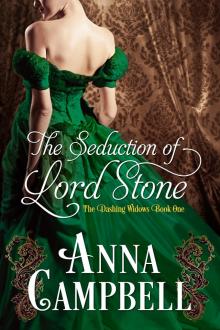 The Seduction of Lord Stone
The Seduction of Lord Stone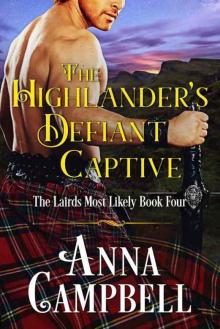 The Highlander’s Defiant Captive: The Lairds Most Likely Book 4
The Highlander’s Defiant Captive: The Lairds Most Likely Book 4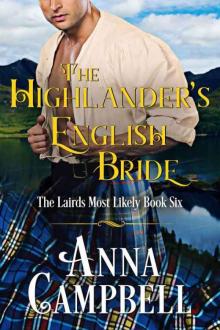 The Highlander’s English Bride: The Lairds Most Likely Book 6
The Highlander’s English Bride: The Lairds Most Likely Book 6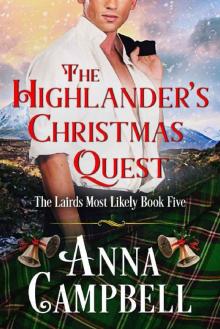 The Highlander’s Christmas Quest: The Lairds Most Likely Book 5
The Highlander’s Christmas Quest: The Lairds Most Likely Book 5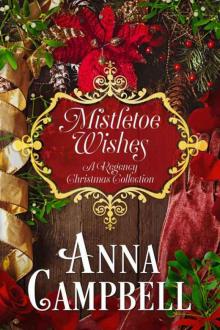 Mistletoe Wishes
Mistletoe Wishes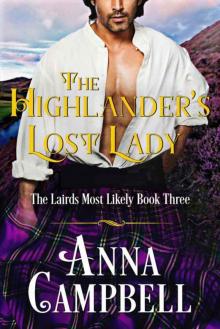 The Highlander's Lost Lady
The Highlander's Lost Lady Two Secret Sins
Two Secret Sins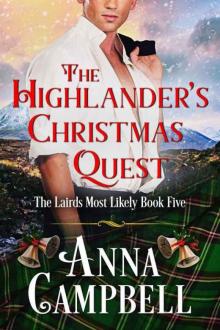 The Highlander's Christmas Quest
The Highlander's Christmas Quest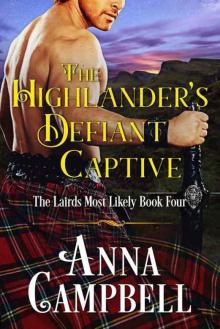 The Highlander's Defiant Captive
The Highlander's Defiant Captive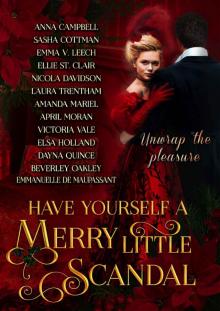 Have Yourself a Merry Little Scandal: a Christmas collection of Historical Romance (Have Yourself a Merry Little... Book 1)
Have Yourself a Merry Little Scandal: a Christmas collection of Historical Romance (Have Yourself a Merry Little... Book 1)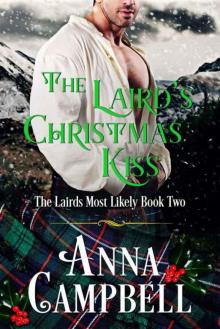 The Laird's Christmas Kiss
The Laird's Christmas Kiss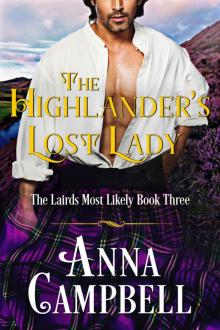 The Highlander’s Lost Lady: The Lairds Most Likely Book 3
The Highlander’s Lost Lady: The Lairds Most Likely Book 3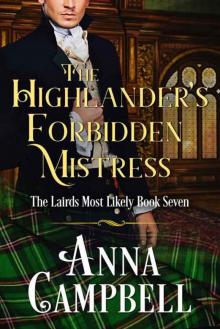 The Highlander's Forbidden Mistress
The Highlander's Forbidden Mistress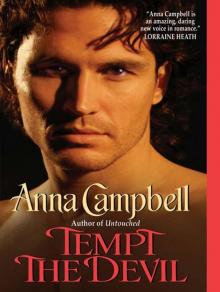 Tempt the Devil
Tempt the Devil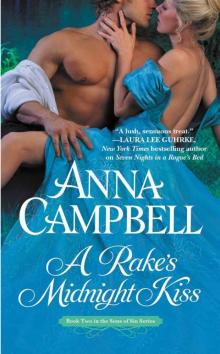 A Rake's Midnight Kiss (Sons of Sin)
A Rake's Midnight Kiss (Sons of Sin)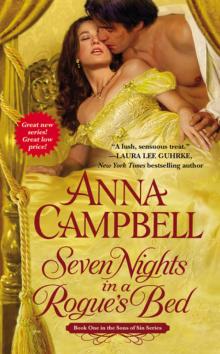 Seven Nights in a Rogue's Bed
Seven Nights in a Rogue's Bed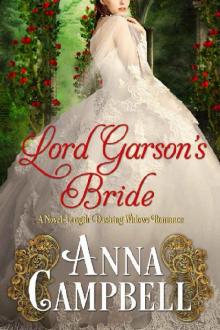 Lord Garson’s Bride
Lord Garson’s Bride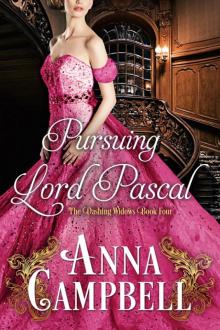 Pursuing Lord Pascal
Pursuing Lord Pascal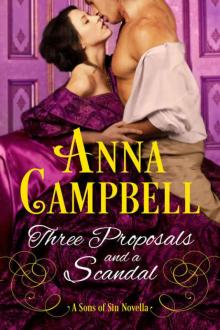 Three Proposals and a Scandal: A Sons of Sin Novella
Three Proposals and a Scandal: A Sons of Sin Novella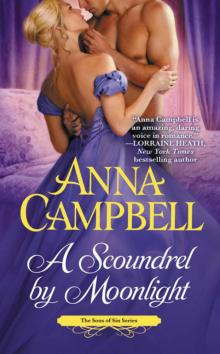 A Scoundrel by Moonlight
A Scoundrel by Moonlight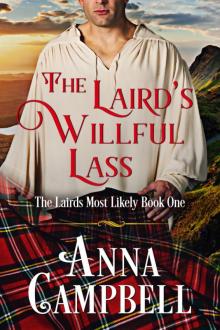 The Laird's Willful Lass
The Laird's Willful Lass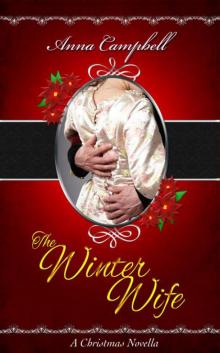 The Winter Wife
The Winter Wife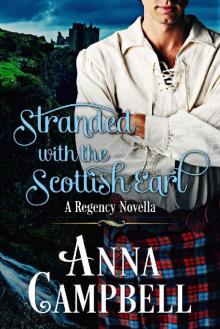 Stranded With The Scottish Earl
Stranded With The Scottish Earl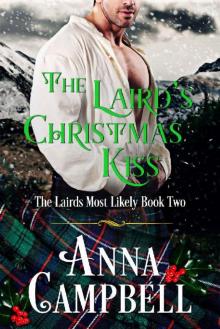 The Laird’s Christmas Kiss: The Lairds Most Likely Book 2
The Laird’s Christmas Kiss: The Lairds Most Likely Book 2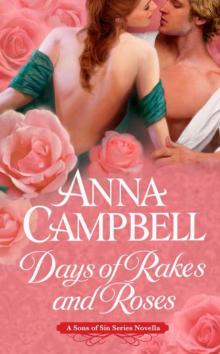 Days of Rakes and Roses
Days of Rakes and Roses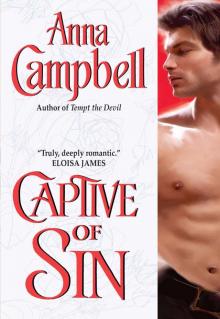 Captive of Sin
Captive of Sin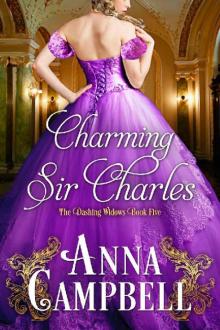 Charming Sir Charles (Dashing Widows Book 5)
Charming Sir Charles (Dashing Widows Book 5)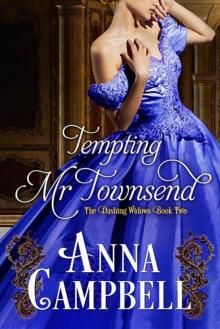 Tempting Mr. Townsend (Dashing Widows)
Tempting Mr. Townsend (Dashing Widows)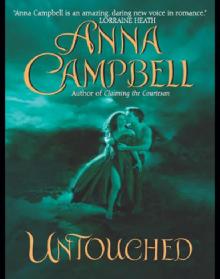 Untouched
Untouched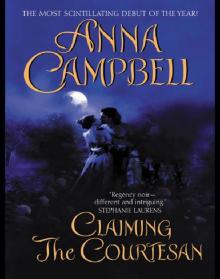 Claiming the Courtesan
Claiming the Courtesan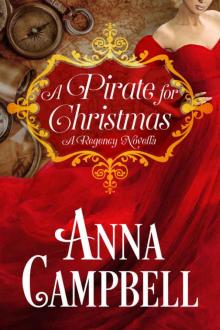 A Pirate for Christmas: A Regency Novella
A Pirate for Christmas: A Regency Novella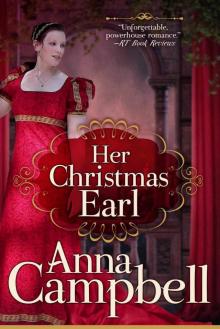 Her Christmas Earl
Her Christmas Earl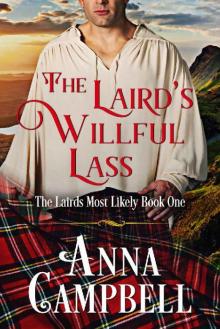 The Laird's Willful Lass (The Likely Lairds Book 1)
The Laird's Willful Lass (The Likely Lairds Book 1)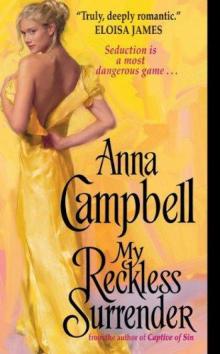 My Reckless Surrender
My Reckless Surrender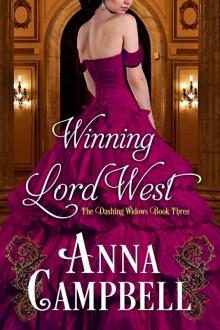 Winning Lord West
Winning Lord West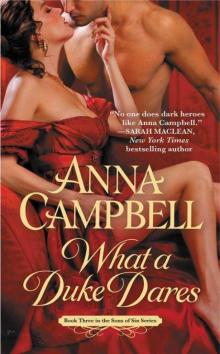 What a Duke Dares
What a Duke Dares